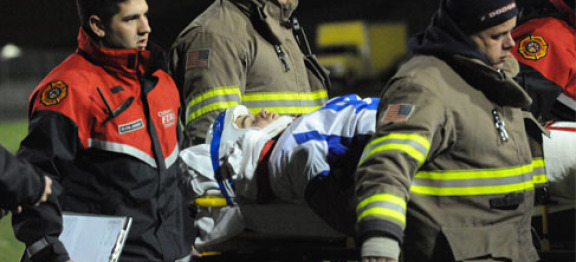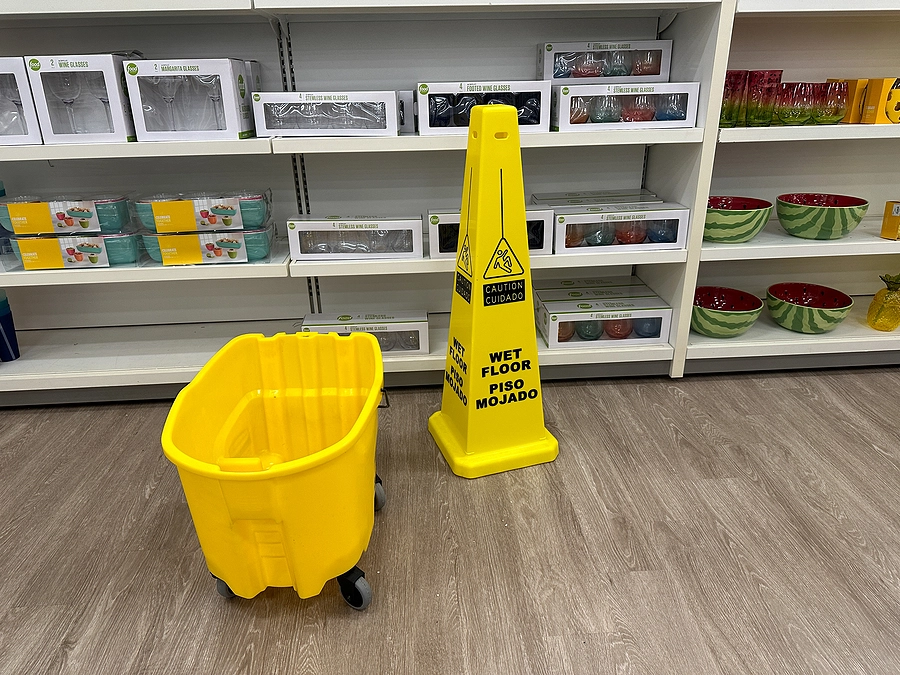JONES LAW GROUPYour Lawyers for Life! Personal Injury Law Firm in St. Petersburg

Football is a wonderful way for boys to stay in shape and to learn valuable life lessons. However, parents need to be ever vigilant to ensure that their children are wearing the proper safety gear and observing rules which make their sport safer. Football is inherently more dangerous than other high school sports. Whether or […]
Call our personal injury law office directly at (727) 512-9847
At Jones Law Group in St. Petersburg, FL, we would like to hear from you. Contact us for a free personal injury case consultation.
Call our personal injury law office at (727) 512-9847
Get educated on the Florida's personal injury laws and more.
Football is a wonderful way for boys to stay in shape and to learn valuable life lessons. However, parents need to be ever vigilant to ensure that their children are wearing the proper safety gear and observing rules which make their sport safer. Football is inherently more dangerous than other high school sports. Whether or not to allow your child to play football is a choice every parent should make in the best interest of their son. In this article, I will discuss high school football in America and examine the safety aspects that affect the players.
Football Injuries
Football is clearly the most dangerous of the “big three” sports which include, football, baseball and basketball. The injuries that can be expected in football can be severe and life altering. Knee injuries, arm injuries and broken bones are a common occurrence on the football field. The main way to avoid these injuries is by playing fundamental football and to teach children at a young age to play within the rules. While these injuries may be more common in football, they are injuries that can occur in any sport. Head injuries, though they can occur in any sport, are exponentially more likely to occur on the football field. Brain injuries also pose the greatest risk to the long term health of your child.
Traumatic Brain Injuries in Football
Where football separates itself, in terms of injuries, is the prevalence of traumatic brain injuries. Every year numerous players die because of head injuries suffered on the field. Perhaps more disturbing is that many traumatic brain injuries and concussions go undiagnosed and the players are allowed to continue playing with a head injury. In my opinion, it is better to err on the side of caution. If you believe that your son may have suffered a head injury, on a particular play, it is best to insist that he is removed from the game until appropriate testing can be performed.
New Study Shows Brain Changes Without a Concussion
Perhaps even more disturbing is a recent study which indicates that high school football players can undergo significant neurological changes after a single season of football. Scientists recently tracked 24 players, ages 16-18, during and after their high school football season.[1] The players were tracked throughout the season with the Head Impact Telemetry System (HITs) which is a helmet mounted system that measures the frequency and severity of impacts. Players who were considered heavy hitters, based on the HITs data demonstrated significant neurological changes even though they did not suffer a diagnosed concussion.
The study has not yet determined what the long term cognitive and emotional effects of playing high school football might be, but the study will continue to try and make these determinations. The study does seem to suggest that high schools need to do a better job of monitoring their players for possible head injuries and following strict protocols when a possible head injury occurs.
Educate Your Child
The dangers of football can never be eliminated, but they can be reduced. Head injuries can be reduced by teach children proper tackling techniques. Players should never lead with the head as it subjects both the head and neck to unnecessary risk. Teach your child about proper hydration. It is extremely important for young players to stay hydrated during games and practices. Everyone has heard, or been subjected to, the football coach that withheld water during hot practices. This practice is criminal. Another issue is that young men rarely want to admit that they have suffered a head injury. Players, coaches and medical staff must be taught to err on the side of caution when there is a possible head injury.
Jones Law Group
Have you or a loved one been injured playing high school sports? Contact an experienced St. Petersburg personal injury attorney at Jones Law Group today. When you contact our office we will immediately set an appointment where you will meet your attorney and be provided with his/her personal contact information. If you do not have transportation or you cannot drive, your attorney will travel to meet you and discuss your case with you.
If your child has suffered injuries playing high school sports that you feel were avoidable, should immediately call an experienced personal injury attorney in St. Petersburg at Jones Law Group at (727) 571-1333 during regular business hours or (727) 753-8657 on weekends or after regular business hours. We will evaluate your case for free and you will never pay us a dime unless we recover compensation for your injuries.
Jones Law Group
5622 Central Avenue
St. Pete, FL 33707
References:

Social media is a great way to keep in touch with friends and family, and a big part of life for many people. We can share our thoughts, opinions, photos, and updates about our lives with everyone we know, and it hardly takes any effort. If you have been injured, you may wish to share […]

The process of filing a personal injury claim for a slip and fall injury at a store involves providing documentation of negligence, injury, and damages to establish liability. Summary Accidents happen, but what happens when a trip to your local convenience store leads to a fall and injury? The shock, pain, and confusion can be […]

Of the nearly 2 million people who suffer a concussion each year, approximately 17% of them (about 300,000) are hurt in car accidents. If you’ve suffered from a concussion car accident, you might wonder whether filing a lawsuit is the right course of action. This decision hinges on various factors, such as the cause of […]

If you have been in a car accident, the other driver’s insurance company will request all previous and current medical information. If you have a prior condition or injury that has been aggravated by the accident, you deserve compensation for the new pain. However, the insurance company may try to pay out as little as […]

Tens of thousands of motorcycle accidents take place in the U.S. every year. When riders are severely hurt, they often panic because their medical bills just keep piling up. Since they can’t work, they have no idea how they’ll make it financially. This is why one of the most important things anyone can do after […]

What makes Jones Law Group the best personal injury lawyer in St. Petersburg? $50M+ recovered, 20+ years experience, free consultations. Call (727) 571-1333.
Speak with us before time runs out! In Florida, you have a limited window to file a personal injury case, so speak to an Attorney today.
Call our personal injury law office directly at (727) 512-9847
Jones Law Group is a dedicated personal injury lawyer in St. Petersburg, FL, serving the Tampa Bay area since 2006. Our experienced attorneys specialize in car accidents, slip and fall cases, employment law disputes, construction law issues, and overtime wage claims, fighting for maximum compensation on a contingency fee basis. Contact us for a free consultation to discuss your case.
Call our personal injury law office at (727) 512-9847
© Copyright 2006–2025 Jones Law Group Attorneys at Law. All rights reserved. Privacy Policy Terms of Use
Attorney Advertising.
The information on this website is for general information purposes only. Nothing on this site should be taken as legal advice for any individual case or situation. This information is not intended to create, and receipt or viewing does not constitute, an attorney-client relationship. Past results do not guarantee similar outcomes.
Are you injured or wronged and interested in a consultation? Fill out the form for a free consultation with us.